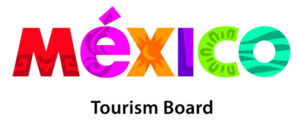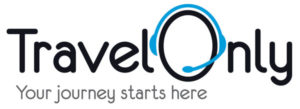
By: Nicole Natassha Goulding, WPICC of Chic by Nicole Wedding + Events
Nicole-Natassha Goulding is the Creative Director and Lead Planner of Chic by Nicole Wedding + Events. Having had a profound love for curating events for friends and family, Nicole established her atelier in 2015. Known for chic, timeless and refined styling, Nicole-Natassha infuses her passion for fashion and interior decor into her design and execution of events. Named one of Martha Stewart Wedding’s “Black Planners to follow”, Nicole has had her work shared and written for publications such as: Wedding Chicks, Style Me Pretty, Carats and Cake, WedLuxe and many more.
Starting a wedding planning business can be exciting, eye-opening as well as scary at the same time. How will clients find you? How do you know clients will want your services? How do you attract your ideal client? These are all very real thoughts and questions that most wedding professionals starting out ask themselves. Hands down getting certified and volunteering is the best way to gain experience in the industry but how do you transition from volunteering to leading the show?
I made a lot of mistakes as a new planner. To be fair, trial and error is probably the best way to navigate the venture of opening a new business. Having said that, I wanted to share 3 mistakes I made as a new planner that you should definitely avoid.

1. Taking on too many tasks
Pricing your services accordingly can be tricky. As a new planner you want to remain competitive but also price yourself according to your experience in order to attract new business. While pricing is important, providing your clients with a realistic list of tasks included in your packages is also imperative to your success. You can be priced fairly, however, by including way too many offerings you are going to underpay yourself. Example: I once had a full planning client that was on a budget and couldn’t afford to pay the rental company the “stair fee” to bring the items upstairs. In order to book the client I offered to have my team take 250 chairs up and down 2 flights of stairs. We ended up spending an extra 4 hours just to perform those tasks on the day of the wedding. Bad idea! Other examples of over tasking yourself can include: DIY florals, running multiple errands on the day of the events and/or offering to take on tasks that the client normally should be paying for.
2. Under-Networking
I cannot stress enough how important networking is in the wedding industry. Many relationships built with other vendors or venues can lead to a significant amount of business in the future. When I started, I would call all my vendors in lieu of meeting them face to face. I held most of my meetings through Google meet instead of at coffee shops or at the vendor’s place of business. While some vendors knew my name they weren’t familiar with me because I didn’t spend the time to get to know them. Get to know the staff at your local rental companies, caterers, florists and all other vendors you interact with. Even if you won’t be working together in the near future, pop up at their places of business and introduce yourself. * This may look different during COVID, however, you can always slide in their DM’s to intro yourself or send an email instead of meeting face to face. Networking with other planners in the industry is also a great way to gain assistant opportunities, mentorship as well as an experienced voice in the industry you can bounce ideas off of. The power of networking is infinite.
3. Advertising in the wrong places
Advertising can sometimes be complicated. How much should you pay for advertising? What’s the ROI? Where are your ideal clients looking for vendors? There is no one size fits all model when it comes to marketing your brand. When speaking to advertising portals about potentially partnering, asking the right questions will help you decipher if the platform is a good fit for you and your business. Advertising in the wrong places can include: spending too many advertising dollars and not receiving a return on your investment, advertising on platforms that aren’t frequented by your ideal client, advertising in the wrong geographical areas as well as advertising on websites or platforms that don’t resonate with your brand. While some advertising can be an investment for brand establishment, when starting out it is really important to decipher your goals in advertising and ensuring your dollars are going to good use. Note: While Facebook groups and Kijiji can be an easy way to market yourselves at no cost, they are normally not the best way to attract clients who are looking for impeccable service vs. lowered pricing.
Taking a leap of faith and starting your own business is always an exciting time. If we’re honest, you will definitely make mistakes. The great thing about mistakes is they guide you in the right direction by avoiding the pitfalls you may have encountered in the past. Hopefully, some of my past mistakes will help you navigate the process of getting on your feet and creating your ideal business.







Leave a Reply